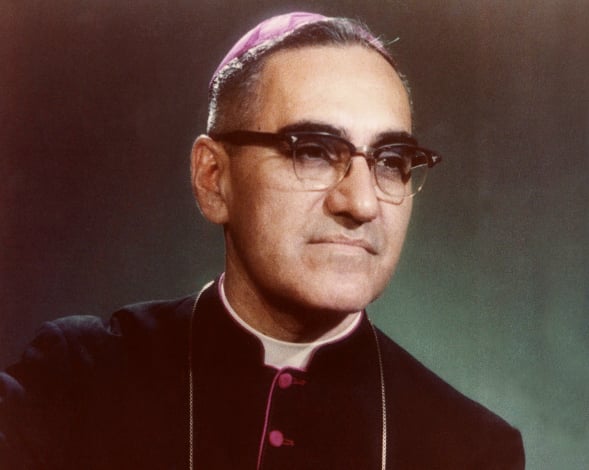
"Saint Oscar Romero: A Life Devoted to Faith and Human Rights"
|
|
Time to read 4 min
|
|
Time to read 4 min
El Salvador in the late 20th century was a nation shrouded in violence. A brutal civil war raged, fueled by poverty, political oppression, and social injustice. In the midst of this turmoil emerged a powerful voice for peace and human rights – Archbishop Oscar Romero. His unwavering commitment to the poor and his courageous pronouncements against the violence earned him the moniker "Voice of the Voiceless." Even today, Saint Oscar Romero's legacy continues to inspire those fighting for justice and equality around the world.
Born in 1917, Oscar Romero's early life gave little indication of the pivotal role he would play in Salvadoran history. Raised in a modest family, he entered the seminary at a young age and was ordained a priest in 1942. For many years, he served in various administrative roles within the Salvadoran church, known for his conservative views and adherence to tradition. However, the escalating violence and social unrest in the 1970s profoundly impacted Romero.
A defining moment arrived in 1977 with the assassination of his close friend, Father Rutilio Grande, a priest known for his outspoken advocacy for the poor. This brutal act of violence served as a wakeup call for Romero. He began to use his position as Archbishop of San Salvador to denounce the human rights abuses perpetrated by both the Salvadoran government and the leftist guerrillas. His Sunday sermons, broadcasted nationally, became a powerful platform for raising awareness about the plight of the oppressed.
Romero's pronouncements were often met with fierce opposition. The government viewed him as a dangerous radical, while some within the church hierarchy found his outspokenness uncomfortable. Undeterred, Romero continued to speak out against the violence, urging all sides to embrace dialogue and nonviolent solutions. He famously challenged soldiers to disobey orders that violated their conscience.
A Martyr for Peace
On March 24, 1980, while celebrating Mass at the Hospital Divine Providence, Romero was assassinated by a single gunshot. His death sent shockwaves through El Salvador and the international community. While the perpetrators were never definitively identified, it was widely believed to be a politically motivated act carried out by right-wing death squads.
In the years following his death, Romero's reputation grew. He became a symbol of peace and human rights activism, not just in El Salvador but throughout the world. In 2018, Pope Francis formally canonized Romero, solidifying his place as a martyr for the faith and a saint for our times.
Beyond Martyrdom: A Legacy of Hope
Saint Oscar Romero's legacy extends far beyond his dramatic martyrdom. His life and work offer a powerful message for those fighting for justice in the face of oppression. Here are some key aspects of his legacy:
Carrying the Torch
Saint Oscar Romero's life and work offer valuable lessons for our own time. In a world grappling with social inequality, political polarization, and ongoing violence, his message of peace and justice remains as relevant as ever. Here are some ways we can carry forward his legacy:
Saint Oscar Romero's story is one of courage, compassion, and unwavering dedication to the pursuit of justice. While his life was tragically cut short, his legacy continues to inspire hope and action. By embracing his message of peace and justice, we can all contribute to building a more equitable and compassionate world. Let Saint Oscar Romero's legacy serve as a beacon of light, guiding us towards a future where dialogue replaces violence, and the rights of all are respected.
Here are some powerful quotes by Saint Oscar Romero that highlight his commitment to peace, justice, and the dignity of all people:
These quotes offer a glimpse into Saint Oscar Romero's unwavering commitment to justice and his unwavering belief in the power of faith and nonviolence.